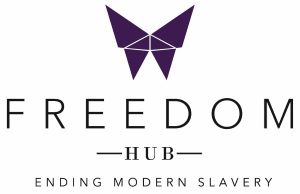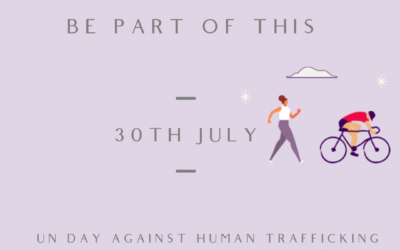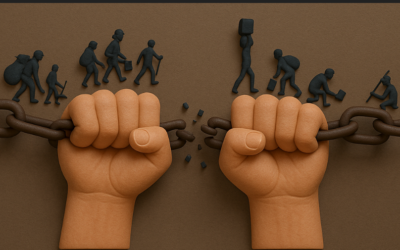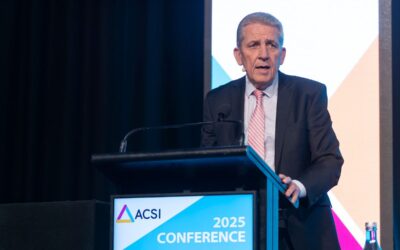We found this recent study demonstrates some common consumer misunderstandings about modern slavery. It looked into what consumers saw was their role in perpetuating and/or eradicating modern slavery. The Freedom Hub is an organisation that is fighting this crime and helping victims recover. So we felt it would be good to comment on some of the findings from our perspective.
“This report investigates how consumers understand modern slavery and their role in perpetuating and/or eradicating modern slavery. It is organised into three sections. The first section focuses on consumer perceptions of modern slavery, the second on consumer accounts and justifications for (widespread) inaction in relation to modern slavery, and the third on questions of consumer trust and responsibility within a multi-stakeholder environment. For each section findings are combined with related prior academic research and suggestions for change are made.”
Four Consumer Findings that we find Alarming….
1. Consumers feel that children in labour are considered slaves but “adults were predominantly categorised by consumers as not slaves – rather as exploited workers with the ability to change their conditions.
Most of the survivors we care for in our Survivor School are adults. We are constantly asked by many people ask us “why don’t they go to the police or run away?”.
It is easy to think this because we view their situation from our own western world view. You only need to spend time with any woman who has lived in a domestic violence situation to understand. Women not leaving a domestic violence situation is a great example of the control a person can have on another.
More Reasons they Don’t Run
Added to the manipulative psychological control, many survivors have come from cultures where work rights are non-existent. Also the police in their country can be corrupt or worse involved in slavery. So victims can quickly assume it is the same in our country. And another reason may be that they have very poor English or none at all. So they don’t know who or how to report.
Usually victims have no identity because passports and possessions have been taken. Therefore, they have no money or phones or computers. Others have been told that they, or someone in their family, will be killed if they run or report. Or they will be put in jail or lose their visa. Victims of modern slavery live with this constant fear. Others feel so guilty about being tricked into the situation, that they put up with it rather than expose the shame on their family. As the months and years go by, many will squash the thought of freedom, and gradually lose the ability to make their own choices.
This is why it is a ‘hidden crime’. It takes a very courageous person to run. And if they do, they have given up on saving their life and expect the consequences to be dire. Take a minute to stop and imagine yourself in non English country, no idea where you are, no ability to communicate, no money or phone, and person threatening to kill you.
–
2. Consumers considered slavery to be something that takes place “far away” in locations “abroad”.
Slavery happens right in Australia. It happens in our harvest fields, in households, in hospitality, in retail, in construction, infact it is most likely in all industries. Modern Slavery in Australia is an umbrella term that includes: human trafficking, slavery, debt bondage, forced labour, forced labour, child labour, servitude and deceptive recruitment for labour or services. The Global Slavery Index 2018 estimated there are 15,000 people in slavery in Australia. We may not have the millions of people in slavery some countries have but we believe that not one person should be in slavery in Australia. So at the Freedom Hub we work hard to raise awareness.
–
3. Irrespective of the location of slavery, consumers largely felt that the responsibility to fix the problem lay with someone external to them, such as, the government or the company involved.
We believe that everyone has a part to play to end this crime. Therefore, companies need to take responsibility with their supply chains and paying correct wages. Likewise, governments need to enforce human rights laws. But we, the consumer, create demand. If we keep buying cheap products with no thought to how they have been made, we are creating the demand. As a result workers and children are exploited. We also need to speak up within our own country. So if we see something suspicious or hear of exploitation report it to the police. Get it on record. We need to be the voice for people who have none.
–
4. Evocations of moral intensity in relation to modern slavery rarely translated into action. More commonly, consumers came up with a series of justifications or neutralisations that allowed them to remove any sense of personal guilt or responsibility in relation to modern slavery. Within our data, we identify four key neutralisation techniques, namely, denial of victim, denial of injury, condemnation of the condemners and dehumanisation of modern slaves.
–
This is very concerning to us.
So let’s take a look at each one of these……
> Denial of Victim: This is a technique whereby the consumer places the responsibility, blame and guilt for their enslavement onto the slave themselves.
As we have already discussed this comes about because we assume a western world view that is educated and privileged.
–
> Denial of Injury: This is a technique whereby the consumer trivialises the experiences of slavery.
We have even had people comment on our facebook page “we are all slaves, we pay taxes”; or “I’m a slave, doing the housework for my family of 6”. As a result, we are very concerned about these findings. Because modern slavery involves no choice, no freedom, no escape and serious threat to well-being.
–
> Condemning the Condemners: This is a technique whereby a consumer deflects personal responsibility or blame. They do this by pointing to the inefficiency or hypocrisy of those who would potentially condemn then. Most notably, governmental and business actors.
As we have already discussed we are all responsible for slavery. We all have slaves working for us. You can find out how many slaves work for you here.
–
> Dehumanising Slaves: a fourth prevalent technique involved consumers, to a varying extent, recognising that slaves are somewhat inferior to them. (i.e., “Western” or “affluent” consumers) and are, therefore, worthy of their fate.
–
What are we Doing about this?
OMG this makes us mad! We are all very aware of racism right now. The Black Lives Matter campaign has reminded us the roots of abuse has come from slavery and this type of superior thinking. And this attitude is hideous to us. Therefore, we exist to fight this and it reminds us of WHY we do what we do. Everyone deserves freedom. Freedom is a basic human right.
Therefore, we will be the voice for those with none. And we will be the change we want to see in the world.
If you want to help here is a list of things you can do to help.
–
Join our Community
If you would like to volunteer, contact us here.
Or If you would like to get our monthly up date, opt in here.
If you would like to support a survivor, donate here.
THANK YOU FOR TAKING THE TIME TO READ OUR BLOG XX




